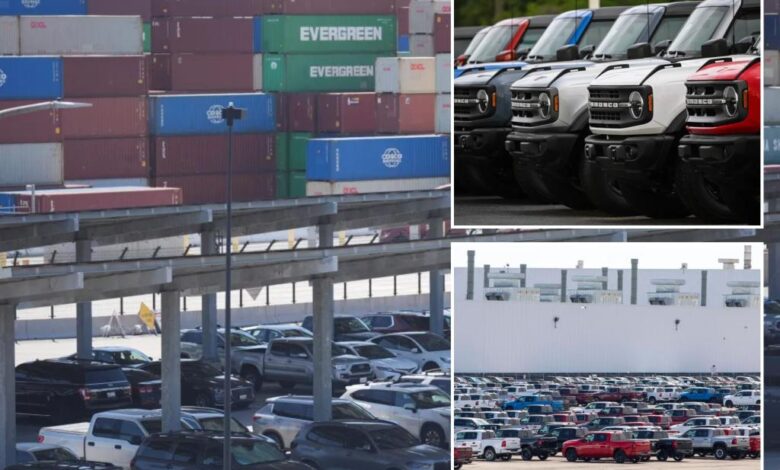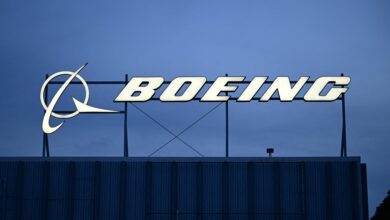Trump’s tariffs to cost US automakers $108B; Ford, GM, Stellantis hit hard


President Trump’s stiff tariffs on foreign auto imports will cost US carmakers nearly $108 billion — with Detroit’s Big Three getting slammed the hardest despite having plants in the states, according to a study.
The 25% tax on foreign auto imports and parts, which went into effect April 3, is expected to impact 17.7 million vehicles, tacking on an estimated $107.7 billion in cost, the Center for Automotive Research, based in Ann Arbor, Mich., reported.
The Trump administration has argued the taxes are meant to woo manufacturing back to the US, since import taxes will not affect made-in-the-USA vehicles.
However, the levies will hit US automakers since many of their models are are built with parts sourced from other countries.
The roughly 500 auto lines had at least 10% of their components imported from outside the US and Canada, according to the NHTSA’s 2025 dataset.
The majority of automakers recorded much higher shares, around 40%.
The Big Three – Ford Motor, General Motors and Stellantis, which owns brands like Jeep and Ram – will bear the much of the brunt, despite their substantial US manufacturing.
The taxes are expected to cost them about $41.7 billion, according to the study, which was released this week.
“This in-depth study by the Center for Automotive Research demonstrates the significant cost a 25% tariff will have on the automotive industry,” Gov. Matt Blunt, president of the American Automotive Policy Council, told The Post in a statement.
“American Automakers Ford, GM, and Stellantis intend to maintain our ongoing dialogue with the administration to achieve our shared goal of increased U.S. automotive production,” he added.
Analysts have warned that the automakers will likely pass at least some of the tariff costs to the consumer.
Those added costs will “likely be distributed across the broader automotive ecosystem,” meaning all aspects of auto supply chains will grow more expensive, according to the research firm.
The research firm warned that its estimate is likely on the low side due to cross-border trade activity, since auto production channels are especially complex.
For example, a US automaker that imports parts from China and then sends them to Mexico for manufacturing would have to pay multiple fees at each border stop.
Some automakers have already taken steps to mitigate the impact of the tariffs.
General Motors is planning to ramp up production at its Indiana plant, according to a Reuters report.
But other automakers could feel pressure to shutter factories or order layoffs, as the added costs could tank their margins without passing along higher price tags to customers.
Stellantis has announced it’s temporarily laying off 900 workers across five US facilities, and pausing production at assembly plants in Mexico and Canada.




